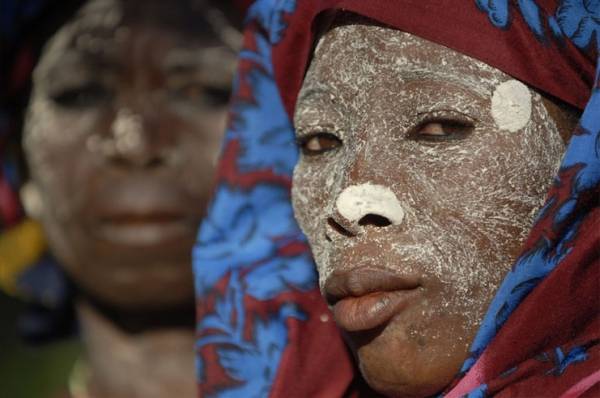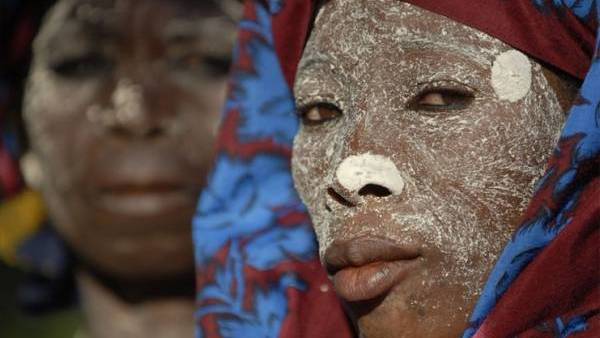An epidemic of ghosts
Source: mindhacks.com

Mozambique is being ravaged by an epidemic of spirit possession. These ‘outbreaks’ have traditionally been dismissed as superstition by commentators from afar, but it is becoming increasingly recognised that different cultures have different ways of expressing mental distress and social anguish – to the point where a team of medical scientists have just published the first large scale epidemiological study on spirit possession and its link to mental and physical illness in post-civil war Mozambique.
In this form of possession, the person feels as if their normal identity has been ‘pushed aside’ by a ‘spirit’, who takes control of their body and typically communicates with other people. After the possession episode, the person usually has amnesia for the episode.
In Western medicine, this is usually understood through a psychological process called dissociation – where normally integrated mental processes become disconnected. It’s like the psychological equivalent of when two teams in a company can’t communicate very well, so they start operating independently rather than as an integrated organisation.
"Demon Possessed Man with Evil Spirits"
Video from: YouTube.com
In many societies around the world the concept of spirit possession plays an important role in understanding and explaining both the forces of nature and the psychology of individuals, to the point where it has both positive and negative effects.
Ethnographic studies have found that, during possession, ‘spirits’ may offer opinions or solutions to moral crises and may protect the individual from trauma and despair during times of violence.
However, negative possession states can causes problems or illnesses that are thought to be triggered by the harmful spirits, which can include anything from fertility problems, to family break-up, to physical aches and pains.
As times change, new spirits appear and old ones fade, each having different effects, benefits or risks. One legacy of the Mozambique war was the emergence of a new type of spirit that had a particular interest in the personal and social legacy of the conflict.
In the late twentieth century, as a result of the Mozambican protracted civil war, gamba spirits emerged. They became the principal harmful spirits and source of diagnosis. Gamba refers to the spirit of male soldiers who died in the war. Possession by gamba is a trauma of a double derivation. First, the host and patrikin [family on the father’s side] were severely exposed to warfare that led to vulnerability; and, second, to address that war-related vulnerability, the host’s patrikin were alleged to have perpetrated serious wrongdoings.
The person possessed by a gamba spirit publicly re-enacts the events of war, sometimes violently, and through the possessed person, the spirit demands public acknowledgement of the injustices they suffered. Spirits who are not appeased continue to torment the possessed person to the point of serious illness.
The study, led by medical anthropologist Victor Igreja and published in Social Science and Medicine, surveyed the extent of possession in two districts in central Mozambique and see how it was linked to trauma and physical health.
They used local criteria for the definition of spirit possession and validated interviews to assess trauma – such as the Harvard Trauma Questionnaire – developed to be used across cultures.
Households were selected at random, and out of 941 people evaluated, 175 (18.6%) reported some form of spirit possession while 5.6% had experienced multiple simultaneous spirit possession.
 People who had been possessed were more likely to be women and have symptoms of physical illness but less likely to have had a baby. Those who went into trances as part of their possession were more likely to be experiencing psychological trauma, have fertility problems, have had a child die during their life and to suffer nightmares
People who had been possessed were more likely to be women and have symptoms of physical illness but less likely to have had a baby. Those who went into trances as part of their possession were more likely to be experiencing psychological trauma, have fertility problems, have had a child die during their life and to suffer nightmaresOne particularly striking finding was that the severity of psychological and physical symptoms was directly related to the number of spirits that a person had been possessed by, with more serious problems being associated with greater numbers of intruding spirits.
While the effects of spirit possession can be seen to have some relation to the Western diagnoses of post-traumatic stress disorder (PTSD), depression or anxiety, there are also many distinct features that reflect a more local concept of how a distressed person can express their mental anguish.
For people familiar with diagnoses drawn from the DSM and World Health Organisation ICD system, it is tempting to think that established descriptions are the ‘real’ disorders while cases of spirit possession are simply a local interpretation of them.
What is becoming increasingly clear, however, is that both our personal experience of psychological distress and how we express that to others, is shaped by our culture. In other words, diagnoses such as PTSD may be as much wedded to a particular culture as spirit possession.
Sadly, this new study is locked behind a pay-wall, but if you have access to the full thing I recommend giving it a read through as it is a curious combination of traditional statistical epidemiology applied to the ‘diagnosis’ of possession.
The paper demonstrates that spirit possession can be studied scientifically and makes as much sense as studying any other psychiatric problem that is defined by unusual or unhelpful behaviour, such as schizophrenia or panic disorder.
Article from: mindhacks.com
Also tune into:
Bob Curran - Dark Fairies, Folklore, Spirits & Creatures
Bob Curran - Earth Lights, Modern Interpretations, Tomtar & Troll
Anthony Peake - Cheating The Ferryman & The Daemon
Anthony Peake - Quantum Weirdness & Precognition
Michael Wynn - The Necronomicon, Magick & Hollywood
Patrick Heron - The Nephilim and the Pyramid of the Apocalypse
Barbara Lamb - Crop Circles Revealed
RedIce Webcast:
Christopher Moors - Halloween Special - The Living Dead - Segment One






















